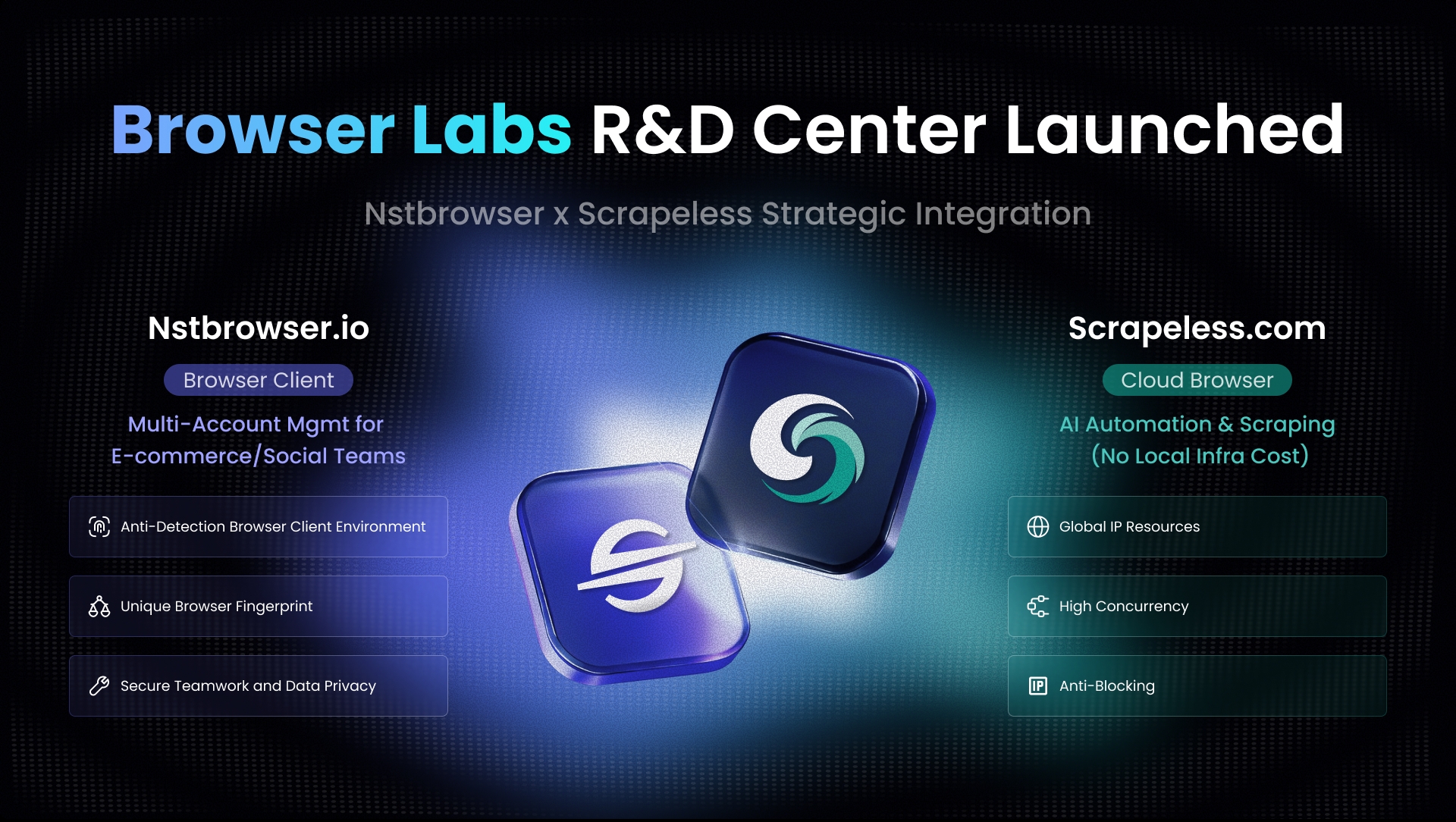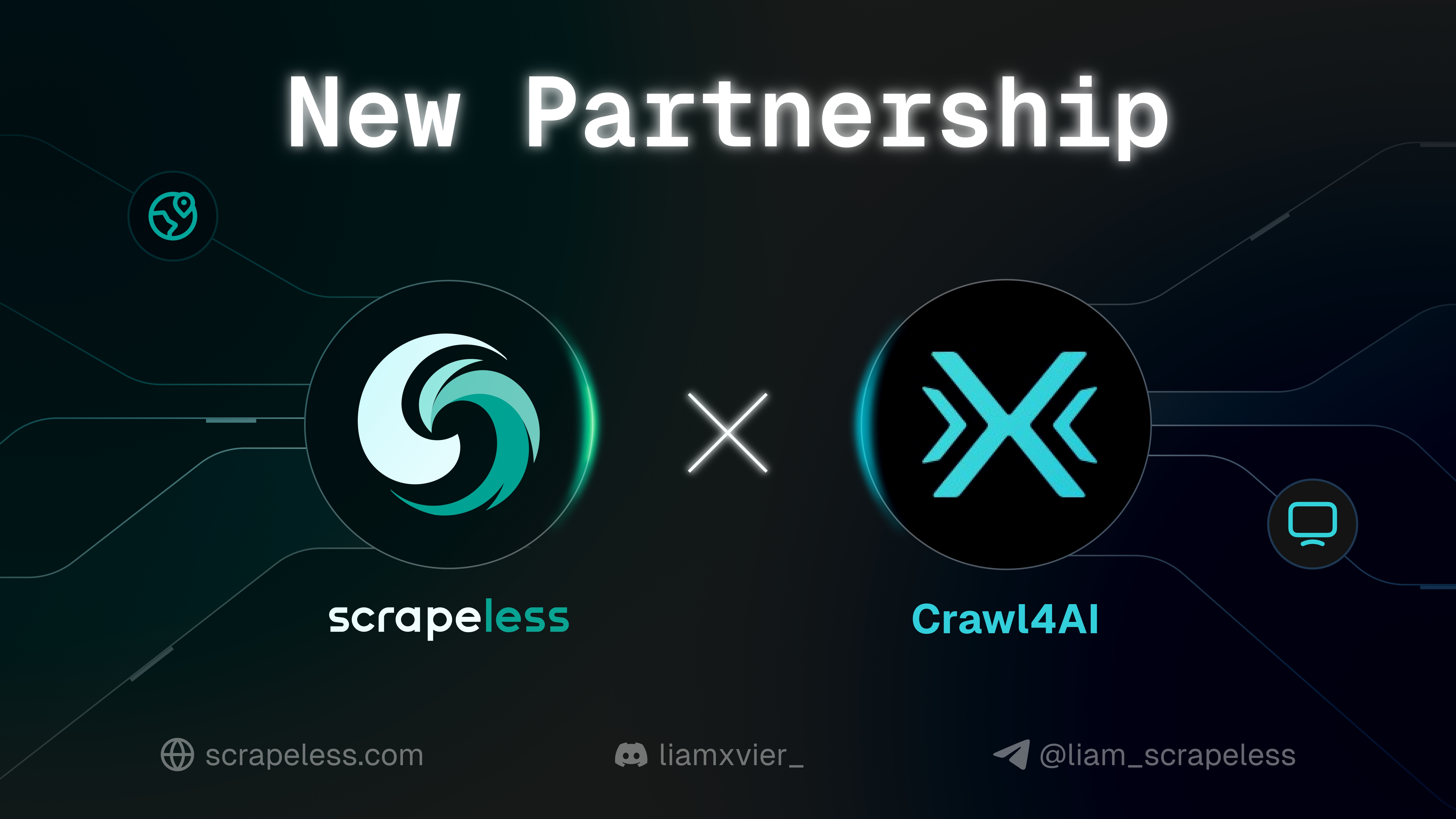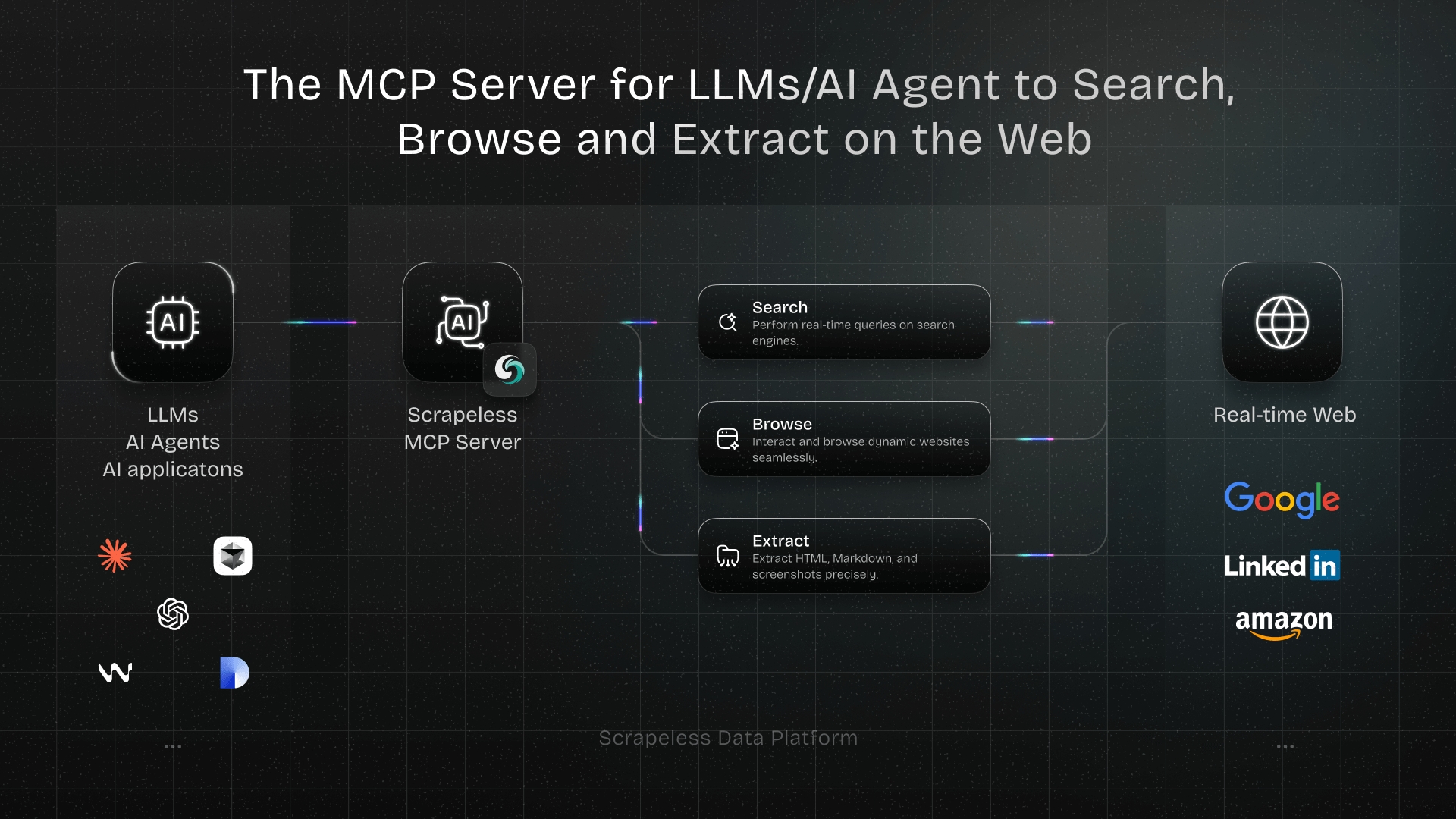What is a Residential Proxy?
Advanced Data Extraction Specialist
Key Takeaways
- Residential proxies are IP addresses issued by ISPs to real households, so traffic looks organic.
- They offer stronger geo-unblocking and authenticity than datacenter proxies for sensitive tasks.
- Core use cases: web scraping, ad verification, market research, QA for localized content, and account management.
- Choose an ethical provider. Make sure sourcing is consensual and compliant with local law and terms of service.
- If you came here wondering what is a residential proxy, it’s the safest path to mimic real users on the web.
Introduction
Bottom line: Residential proxies route your traffic through real home IPs. This makes your requests look like genuine user visits. If you’re asking what is a residential proxy, think of it as a privacy and access layer that reduces blocks while enabling accurate geo testing and data collection. This guide explains how they work, types of residential proxies, where they excel, how they compare with datacenter IPs, legal and ethical considerations, and a practical checklist for choosing a provider. It’s written for data teams, growth marketers, researchers, and engineers who need reliable access to public web data at scale.
Related reading on legality and bot norms: Is Web Scraping Legal? and How to Interpret robots.txt.
How Residential Proxies Work: Mimicking Real User Behavior
A residential proxy replaces your visible IP with a home ISP IP so sites treat you like a typical user. Here’s the flow:
- You send a request (open a page, fetch an API).
- The proxy network intercepts and assigns a residential IP from its pool.
- The request reaches the target site as if it came from that home device.
- The response returns to the proxy, then back to you.
Because the IP belongs to a household, reputation and geo signals look authentic, so blocks drop sharply. This is why teams that ask “what is a residential proxy” usually care about success rates, not only anonymity.
Reality check: Modern bot defenses still analyze behavior, fingerprints, and velocity — not only IP origin. Residential IPs help, but poor request hygiene still gets flagged.
Anatomy of a Request
- IP identity: Home network, city-level geolocation, normal ASN.
- Headers & fingerprint: Must look consistent; rotate User-Agent and keep cookies/session flows sane. See User-Agent basics.
- Cadence: Control concurrency and timing; respect crawl-delay and rate hints in robots and sitemaps.
What Are Residential Proxies?
A residential proxy is a middle layer that masks your device’s IP with an ISP-issued home IP. It boosts authenticity and access. Authoritative definitions emphasize real ISP IPs attached to real devices across cities and countries.
What Is a Residential IP?
It’s an IP address registered to a consumer ISP and mapped to a physical location. Sites infer the ISP, ASN, and city from public IP registries. That’s why residential traffic blends in so well.
Residential Proxy Types: Choose by Stability, Scale, and Stealth
Pick the type that matches your job’s risk profile and session needs.
| Proxy Type | Cost | Speed | Anonymity / Stealth | Block Likelihood | Best For |
|---|---|---|---|---|---|
| Shared Residential | Low | Moderate | Moderate | Higher | Budget jobs, light scraping |
| Mobile Residential | High | High | Very High | Very Low | Mobile app QA, strict geo/content, carrier-only flows |
| Rotating Residential | High | High | Very High | Very Low | Large-scale scraping, price tracking, ad verification |
| Static Residential (ISP) | Medium–High | High | High | Low | Account management, checkout QA, persistent sessions |
Dedicated Residential Proxies
Exclusivity improves stability. A dedicated residential IP is used only by you. That reduces noisy neighbors, lowers CAPTCHA rates, and keeps sessions stable. It’s preferred for always-on monitors, multi-account operations, and market dashboards.
Residential vs. Datacenter Proxies: Crucial Differences
Datacenter IPs are cheaper and faster; residential IPs are harder to detect and block. If reliability matters, residential wins.
| Feature | Residential Proxies | Datacenter Proxies |
|---|---|---|
| IP Source | Real households via ISPs | Cloud/data center ranges |
| Authenticity | High; looks like organic visits | Lower; easy to classify |
| Typical Speed | Variable, good enough | Often faster |
| Anonymity | Very high (with good hygiene) | Moderate |
| Block Rate | Low on tuned setups | Higher on sensitive targets |
| Typical Uses | Scraping tough sites, ad verification, local SEO, QA | Bulk crawling, non-sensitive tasks |
Independent vendor docs and industry guides align with this picture: residential IPs are attached to consumer devices and appear more trustworthy, while datacenter IPs trade authenticity for speed and price.
Core Use Cases with Examples
-
Web Scraping & Competitive Intelligence
Pull prices, inventory, and reviews without constant blocks. Example: an e‑commerce team tracks daily price and stock changes across 50 city markets using rotating residential IPs and polite rate limits. For practical scraping design, see Browser-Use + Scraping Browser and tool comparisons. -
Ad Verification & Brand Safety
Verify ad placement and creatives as real users see them in each region. Detect cloaking and affiliate fraud by loading pages through local residential IPs at city granularity. Major ad-tech workflows rely on this approach. -
Market Research & Localized Experiences
Validate SERPs, local pricing, and content gates. Example: a travel site checks country-specific hotel offers and taxes, ensuring fairness across locales while honoring robots and ToS. For compliance framing, read legal basics. -
QA for Geo-Restricted Features
Test checkout flows, tax/VAT calculations, and location-based feature flags. Static residential IPs keep long sessions stable during test runs. -
Account & Community Operations
Maintain multiple regional business accounts. Use static ISP IPs with realistic device fingerprints and steady usage patterns.
Limitations & Risk Management
Residential ≠ invisible. Success depends on behavioral realism and ethics.
- Detection still happens. Cloud providers analyze signals beyond IP reputation (TLS, JS challenges, mouse/keyboard traces, timing). Poor hygiene gets blocked even on home IPs.
- Shared pools vary. Overused IPs or aggressive concurrency can taint reputation and trigger 403/429 spikes.
- Legal and platform ToS matter. Public data is generally safer; bypassing auth walls or rate limits can violate terms or law. See legal overview and robots.txt guidance.
- Abuse headlines exist. News stories show criminals also misuse residential networks, which is why reputable providers require KYC and strict AUPs.
How to Choose an Ethical, Effective Provider (Checklist)
Evaluate on sourcing, success rates, and controls — not just IP counts.
Sourcing & Compliance
- Explicit end‑user consent and opt‑out for peer networks; contracts for ISP/ISP‑hosted IPs.
- Clear Acceptable Use Policy, KYC, and audit trails.
- Data processing terms (GDPR/CCPA), breach notification, and data minimization statements. Helpful primers: industry docs from major vendors and independent reviews.
Network & Performance
- Countries/cities supported; static vs rotating options; SOCKS5 + HTTP(S).
- Verified success rates on target categories (retail, classifieds, travel). Published benchmarks beat vague promises.
- Concurrency limits, sticky sessions, and session TTL controls.
Anti-Detection Aids
- Header and fingerprint tooling; residential + mobile mixes; built‑in CAPTCHA/JS challenge handling.
- Browser automation compatibility (Puppeteer/Playwright) and scraping browsers.
Controls & Support
- Dashboards with usage analytics, sub‑accounts, and fine-grained whitelisting.
- SLA, refunds for dead IPs, transparent billing (per‑GB, per‑port). Tech media roundups often compare these.
Implementation Playbooks (Quick Starts)
- Rotating Scraper (prices & stock): Rotate per-request, jitter delays, back off on 429, persist cookies for realism.
- Ad Verification Sweep: City-level IPs, schedule checks at peak hours, compare screenshots and HTML diffs.
- Sticky Session Testing: Use static ISP IPs, fixed device profile, and run full checkout flows end‑to‑end.
Legal & Ethical Considerations
Focus on lawful purpose, public data, and respectful access patterns.
- Favor publicly available pages. Avoid paywalled or personal data without consent.
- Respect robots directives, rate hints, and site integrity. See Scrapeless’ notes on robots, user‑agents, and legality linked throughout this guide.
- Document legitimate interests and implement opt‑outs where applicable.
- Many providers stress legality depends on use, not the proxy itself; reputable operators discourage abuse and require compliance.
Comparison Summary (Residential Types at a Glance)
Match type to task; do not overpay for stealth you don’t need.
| Scenario | Recommended Type | Why |
|---|---|---|
| High‑volume scraping with tough defenses | Rotating Residential | Fresh IP each request; fewer blocks |
| Persistent login sessions, QA | Static ISP Residential | Stable sessions; predictable cookies |
| Carrier‑locked experiences, app QA | Mobile Residential | Strongest legitimacy on mobile-only paths |
| Budget research on tolerant sites | Shared Residential | Lower price, acceptable risk |
Recommended: Scrapeless for Block‑Resistant Scraping
If you need outcomes, not just IPs, add orchestration. Scrapeless combines scraping browser tech, smart rotation, and workflow automation to reduce blocks and speed up delivery. Explore hands‑on guides like Browser‑Use + Scraping Browser, tool comparisons, and AI‑assisted e‑commerce analysis.
Try it now: Sign in to Scrapeless
Conclusion
Residential proxies solve the access and authenticity problem for modern data work. If you came searching what is a residential proxy, remember: choose an ethical source, tune behavior, and measure success rates, not just IP counts. When you’re ready to operationalize, pair high‑quality residential IPs with a managed scraping stack.
👉 Start a workflow today with Scrapeless: Free sign‑in
FAQ
Q1. Is using residential proxies legal?
Generally yes for lawful purposes and public data. Illicit use remains illegal and can violate ToS. Providers and legal guides emphasize the use‑case determines legality.
Q2. Are residential proxies undetectable?
No. They are harder to detect, but behavior still reveals bots. Expect challenges if you push too fast or skip fingerprints.
Q3. Residential vs. mobile proxies — which should I pick?
Mobile proxies add another trust layer (carrier networks). They’re pricier and best for mobile‑only or high‑sensitivity tasks. Datacenter IPs are cheaper but easier to flag.
Q4. Do I need rotating or static ISP residential IPs?
Rotate for discovery and scale. Use static ISP IPs for logins, carts, and long QA sessions.
Q5. How do I stay compliant?
Stay on public pages, respect robots and rate limits, and document your purpose. Review vendor AUP/KYC and privacy terms. See Scrapeless guides linked above.
External References
At Scrapeless, we only access publicly available data while strictly complying with applicable laws, regulations, and website privacy policies. The content in this blog is for demonstration purposes only and does not involve any illegal or infringing activities. We make no guarantees and disclaim all liability for the use of information from this blog or third-party links. Before engaging in any scraping activities, consult your legal advisor and review the target website's terms of service or obtain the necessary permissions.



